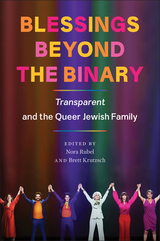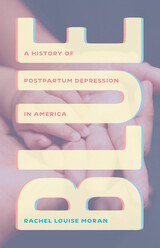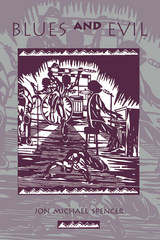8 start with V start with V
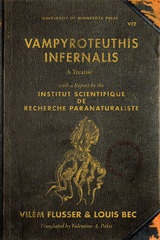
How far apart are humans from animals—even the “vampire squid from hell”? Playing the scientist/philosopher/provocateur, Vilém Flusser uses this question as a springboard to dive into a literal and a philosophical ocean. “The abyss that separates us” from the vampire squid (or vampire octopus, perhaps, since Vampyroteuthis infernalis inhabits its own phylogenetic order somewhere between the two) “is incomparably smaller than that which separates us from extraterrestrial life, as imagined in science fiction and sought by astrobiologists,” Flusser notes at the outset of the expedition.
Part scientific treatise, part spoof, part philosophical discourse, part fable, Vampyroteuthis Infernalis gives its author ample room to ruminate on human—and nonhuman—life. Considering the human condition along with the vampire squid/octopus condition seems appropriate because “we are both products of an absurd coincidence . . . we are poorly programmed beings full of defects,” Flusser writes. Among other things, “we are both banished from much of life’s domain: it into the abyss, we onto the surfaces of the continents. We have both lost our original home, the beach, and we both live in constrained conditions.”
Thinking afresh about the life of an “other”—as different from ourselves as the vampire squid/octopus—complicates the linkages between animality and embodiment. Odd, and strangely compelling, Vampyroteuthis Infernalis offers up a unique posthumanist philosophical understanding of phenomenology and opens the way for a non-philosophy of life.
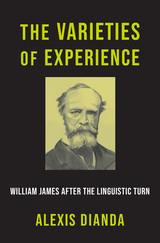
A reclamation of experience as the foremost concept in the work of William James, and a powerful argument for the continuing importance of his philosophy.
How does one deploy experience without succumbing to a foundationalist epistemology or an account of the subject rooted in immediately given objects of consciousness? In the wake of the so-called linguistic turn of the twentieth century, this is a question anyone thinking philosophically about experience must ask.
Alexis Dianda answers through a reading of the pragmatic tradition, culminating in a defense of the role of experience in William James’s thought. Dianda argues that by reconstructing James’s philosophical project, we can locate a model of experience that not only avoids what Wilfrid Sellars called “the myth of the given” but also enriches pragmatism broadly. First, Dianda identifies the motivations for and limitations of linguistic nominalism, insisting that critics of experience focus too narrowly on justification and epistemic practices. Then, by emphasizing how James’s concept of experience stresses the lived, affective, and nondiscursive, the argument holds that a more robust notion of experience is necessary to reflect not just how we know but how we act.
The Varieties of Experience provides a novel reconstruction of the relationship between psychology, moral thought, epistemology, and religion in James’s work, demonstrating its usefulness in tackling issues such as the relevance of perception to knowledge and the possibility of moral change. Against the tide of neopragmatic philosophers such as Richard Rorty and Robert Brandom, who argue that a return to experience must entail appeals to foundationalism or representationalism, Dianda’s intervention rethinks not only the value and role of experience but also the aims and resources of pragmatic philosophy today.
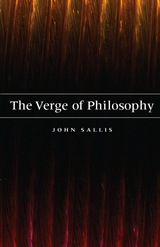
The Verge of Philosophy is both an exploration of the limits of philosophy and a memorial for John Sallis’s longtime friend and interlocutor Jacques Derrida. The centerpiece of the book is an extended examination of three sites in Derrida’s thought: his interpretation of Heidegger regarding the privileging of the question; his account of the Platonic figure of the good; and his interpretation of Plato’s discourse on the crucial notion of the chora, the originating space of the universe.
Sallis’s reflections are given added weight—even poignancy—by his discussion of his many public and private philosophical conversations with Derrida over the decades of their friendship. This volume thus simultaneously serves to mourn and remember a friend and to push forward the deeply searching discussions that lie at the very heart of that friendship.
“All of John Sallis’s work is essential, but [this book] in particular is remarkable. . . . Sallis shows better than anyone I have ever read what it means to practice philosophy on the verge.”—Walter Brogan, Villanova University

In his previous book, Doubt, Time, Violence, Hoffman explored the theme of violence in relation to Descartes' problematic of doubt and Heidegger's work on temporality. The pivotal notion deriving from that investigation is the notion of the other as the ultimate limit of one's powers. In effect, Hoffman argues, our practical mastery of the natural environment still leaves intact the limitation of human agents by each other. In a violent environment, the other emerges as an insurmountable obstacle to one's aims and purposes or as an inescapable danger which one is powerless to hold at bay. The other is thus the focus of an ultimate resistance to one's powers.
The special status of the other, as Hoffman articulates it, is at the root of several key notions around which modern philosophy has built its problematic. Arguing here that when the theme of violence is taken into account many conceptual tensions and puzzles receive satisfying solutions, Hoffman traces the theme through the issue of things versus properties; through Kant's treatment of causality, necessity, and freedom in the Critique of Pure Reason; and through the early parts of Hegel's Logic. The result is a complete reorientation and reinterpretation of these important texts.
Violence in Modern Philosophy offers patient and careful textual clarification in light of Hoffman's central thesis regarding the other as ultimate limit. With a high level of originality, he shows that the theme of violence is the hidden impulse behind much of modern philosophy. Hoffman's unique stress on the constitutive importance of violence also offers a challenge to the dominant "compatibilist" tradition in moral and political theory. Of great interest to all philosophers, this work will also provide fresh insights to anthropologists and all those in the social sciences and humanities who occupy themselves with the general theory of culture.
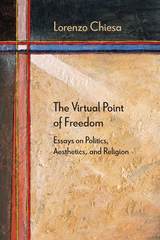
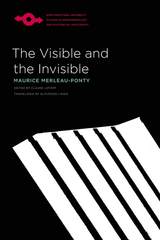
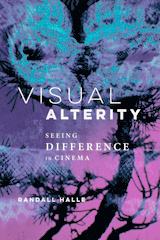
Using cinema to explore the visual aspects of alterity, Randall Halle analyzes how we become cognizant of each other and how we perceive and judge another person in a visual field. Halle draws on insights from philosophy and recent developments in cognitive and neuroscience to argue that there is no pure "natural" sight. We always see in a particular way, from a particular vantage point, and through a specific apparatus, and Halle shows how human beings have used cinema to experiment with the apparatus of seeing for over a century. Visual alterity goes beyond seeing difference to being conscious of how one sees difference. Investigating the process allows us to move from mere perception to apperception, or conscious perception.
Innovative and insightful, Visual Alterity merges film theory with philosophy and cutting-edge science to propose new ways of perceiving and knowing.
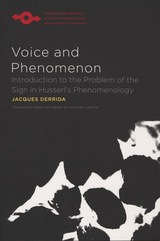
Only in relation to phenomenology is it possible to measure the importance of deconstruction. Only in relation to Husserl’s philosophy is it possible to understand the novelty of Derrida’s thinking. Voice and Phenomenon therefore may be the best introduction to Derrida’s thought in general. To adapt Derrida’s comment on Husserl’s Logical Investigations, it contains “the germinal structure” of Derrida’s entire thought. Lawlor’s fresh translation of Voice and Phenomenon brings new life to Derrida’s most seminal work.
READERS
Browse our collection.
PUBLISHERS
See BiblioVault's publisher services.
STUDENT SERVICES
Files for college accessibility offices.
UChicago Accessibility Resources
home | accessibility | search | about | contact us
BiblioVault ® 2001 - 2024
The University of Chicago Press


